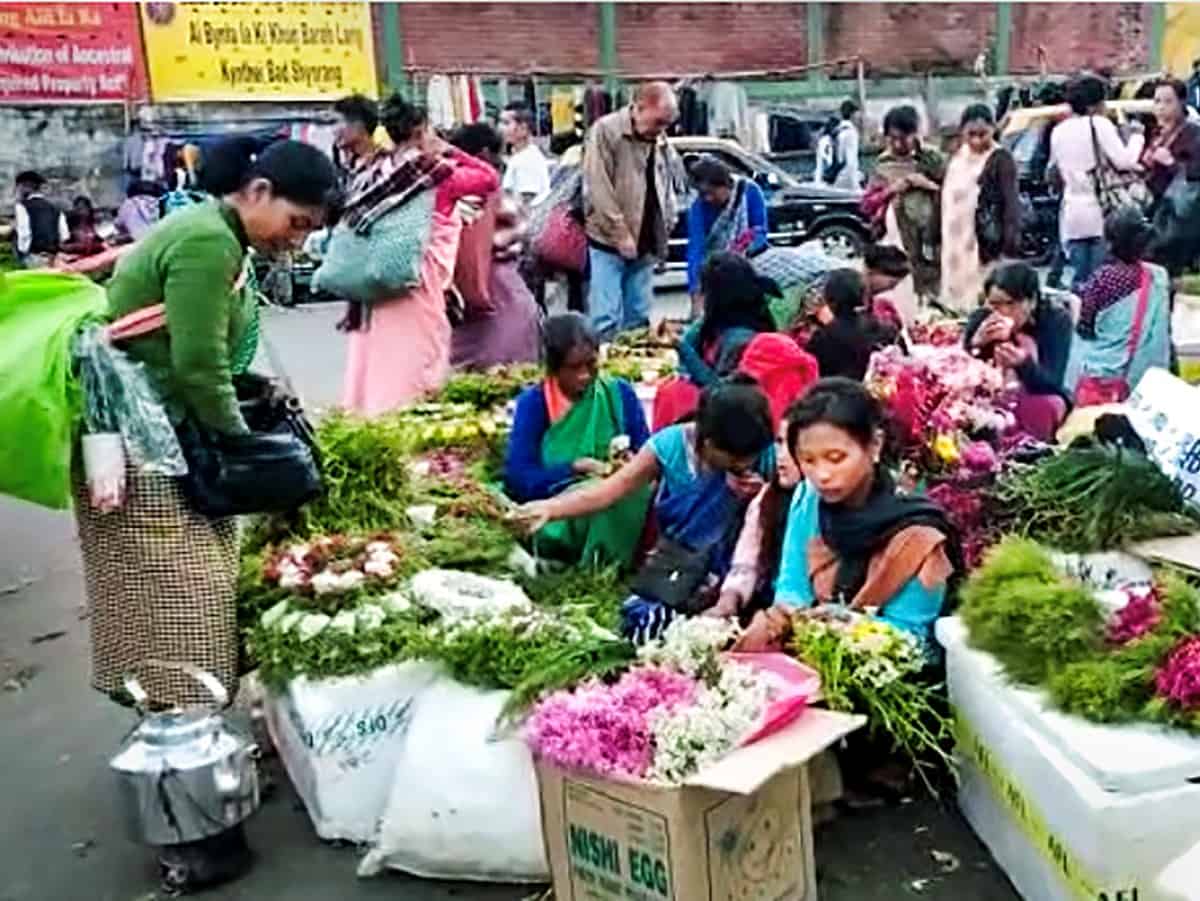
Shillong: Children get their mother’s last name, husbands move into their wives homes and youngest daughters inherit family property. But with only four women legislators in a house of 60, the empowerment promised by Meghalaya’s matrilineal society is only half done.
It’s empowering but only up to a point, say women across the societal and political spectrum ahead of the February 27 assembly elections. Though millions of women in Khasi-dominated Meghalaya enjoy several rights and privileges, the political odds in the patriarchal power circuit are loaded against them.
As campaigning gains momentum, it’s an oft-debated subject, from political party offices to the streets of this picturesque state capital.
“In matters of politics and governance, women are still kept in their little closets here. They are restricted to their four walls,” Ampareen Lyngdoh, National People’s Party candidate from East Shillong seat, told PTI.
The NPP, which leads the current Meghalaya Democratic Alliance (MDA) government of the state, has fielded six women in the upcoming elections.
“There have been a few women who have come up but it’s not been anything substantial. Behind every successful male politician, there is a battalion of women. Somehow, women have not managed the courage to contest. This time we are aiming for some change,” Ampareen Lyngdoh added.
Her younger sister Jasmine Lyngdoh is contesting on an NPP ticket from the nearby Nongthymmai Constituency.
Other parties are also aware of the changing discourse in a state where Khasis account for the largest ethnic community.
According to Election Commission data, 36 women candidates are in the fray for Meghalaya’s 60 member assembly up from the 32 candidates in 2018 and 24 in 2013.
The skewed equation is reflected in the number of women elected. In the 2018 and 2013 assemblies, there were four women legislators. And in 2008, the figure was one.
Women — who comprise about half the state’s projected population of 38 lakh — are hoping this will change.
Trying to recapture its lost glory, the Congress has taken the lead and fielded 10 women.
“Our party gives due representation to women and this has also stirred other parties. In Meghalaya, more than half the population comprises women. This is the time we should come out. As a matrilineal society, our ancestors have empowered us and it is for us to use that empowerment,” Dr Benida Shisa Kharkongor, Congress candidate for Nongthomal constituency, told PTI.
The Trinamool Congress, another formidable contender, has also made clear its women focussed agenda.
Party supremo and West Bengal Chief Minister Mamata Banerjee has already visited Meghalaya twice and launched a financial assistance scheme called Meghalaya Financial Inclusion for Women Empowerment (MFI-WE).
Party insiders said more than 3.14 lakh people have registered for the MFI-WE or WE Card so far.
Elgiva Gwyneth Rynjah, 32, is one of the youngest female candidates contesting the polls on a TMC ticket. She claims to have made history by releasing her own “manifesto” for North Shillong constituency. Her poll promises include education and healthcare and food.
“It depends upon us… we should have the courage to come on the streets. If you have the vision, you can lead the state. In our state women tend to shy away, we need to educate them and encourage them to come out,” Elgiva when asked about the lack of women participation in elections.
Not everyone agrees with Elgiva’s assertions. It may not be that simple with elections requiring both money and muscle power. Most women legislators have come from affluent families with political connections.
“The participation of women is important but at the same time it is crucial to see which section of society they are from. Not everyone has money and a powerful background,” said Angela Rangad, an independent candidate and a social activist with organisation KAM Meghalaya.
The group has fielded three candidates, including Wanpynhun Kharsyntiew, a domestic worker before she became part of the national domestic workers’ movement. All of them are crowdfunding their campaigns.
Political under-representation for women in Meghalaya is not just about the assembly. It goes right down the grassroots.
Traditional village-level institutions of the Khasis, the Dorbar Shnongs, have not allowed women to contest elections. Earlier, they were barred from even attending its meetings and would be represented by an adult male member. Given the powerful status these Dorbars enjoy, most women shy away from speaking openly against them.
From poverty to being abandoned by their male partners, many women are faced with a multitude of problems and are looking for political representation to help solve them.
“There are so many single mothers here. It is a major issue and they don’t have many avenues. Girls also drop out of schools. It is like an epidemic. We need leaders among us who can voice these concerns,” said Dhani, a schoolteacher.
Rangli, a hawker at Shillong’s famous Police Bazaar, echoes her.
“You can see all around there are women, we are working hard but nobody in the government wants to see what our problems are. They don’t know,” Rangli, who sells traditional handicrafts, said when asked about women representation in politics.
Clearly, however, political representation and control is imperative for autonomy, empowerment and agency over their lives.
The women of Meghalaya, one of the few matrilineal societies in the world, wait for the day they will have it all — societal power and also political control.



